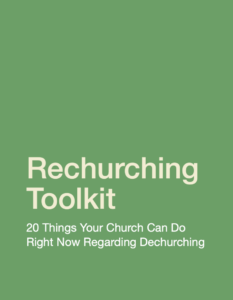The very weekend before our church shut down last year, we hired a new associate pastor. Spirits were high among our members, and momentum—not sorrows—like sea billows rolled.
A year later, we have more church services, so our vibrant, bustling congregation is more dispersed. I coated half our pews with blue painter’s tape to block entrance to the rows. Our pastors, staff, and volunteers work harder but seem to accomplish less. Your pastors probably do too.
As we approach the anniversary of a full year under the various iterations of COVID-church, I lament the many losses of connection and normalcy, along with missing sheep, masked services, video preaching, and Zoom Sunday school. I understand it all, but I lament it—as we should.
Righteous Lament of Job
In short, I miss the days when my church was washed in butter. This allusion comes from Job’s lamentations over the loss of his former blessings. “Oh,” he says, “when my steps were washed with butter” (Job 29:2, 6)—the time before those sorrows like sea billows rolled.
Maybe this butter metaphor has so captivated me because seven years ago the Lord took away my ability to eat dairy. God didn’t give me a dollop of lactose intolerance, but an allergic gut-punch that often results in days of crushing sickness. And here Job, bless his heart, longs for the days when the cream and the fat and the buttery goodness of the Lord oozed all around him. Thus, Eugene Peterson paraphrases the opening lines from this chapter: “Oh, how I long for the good old days, when God took such very good care of me” (The Message).
Job longs for the days when the cream and the fat and the buttery goodness of the Lord oozed all around him.
But the emotion driving Job’s laments is not just sadness for the loss of his extravagant prosperity, what we might call lament for the loss of mere prosperity. Job lost something virtuous, well-rounded, and Godward. He laments losing the days when “I caused the widow’s heart to sing” (v. 13), “I broke the fangs of the unrighteous” (v. 17), and “when my children were all around me” (v. 5)—the 10 children he and his wife buried in 10 coffins on the same day. And chiefly Job laments the days when he felt “God watched over me” (v. 2).
God Was in Our Abundance
I asked my family what they missed from church before COVID. My oldest son said with no hesitation, “The hot chocolate.” Another daughter rejoined, “And powdery donuts.”
These may feel inconsequential in the scheme of things, like melodramatic lament for a stubbed pinky toe. But pastor’s kids lamenting the loss of Sunday-morning snacks hinted at a greater loss. Our church café, formerly a place of fellowship and prayers, hugs and laughter, and bustling crowds, now has a cloudy plastic tarp draped across the coffee carafes. When we covered our coffee and hot chocolate, we thought it might keep dust off for the few weeks they would go unused. They’ve now remained covered and unused for 52 weeks.
Not only do my children miss the snacks, but so do the children of the many refugees and immigrants who call our church home. Throughout the week our lives might not overlap as much as they should, but we’re all one at the foot of the cross and a box of pastries. Even our church cleaner tells me she misses the day when the café left crumbs everywhere on Monday morning.
Even our church cleaner tells me she misses the day when the café left crumbs everywhere on Monday morning.
My wife said she missed seeing the collection of the offering. We used to pass the plate in worship services because we saw it as worship. Now, if people want to give, we direct them to impersonal decorative boxes attached to the wall by the exterior doors. “Have a nice week; don’t forget to give.”
If I were to tell you what I miss as a pastor, I’d need more words than Job used in chapter 29.
God Is in Our Ashes
Yet the hand of the Lord still rests upon our church, as it did on Job. Even when our cups do not runneth over, God sits with us in the ashes.
Our church tried all the options: online, in-person with and without masks, less singing, more singing. Some of the sweetest times in the last year were our outdoor services. They allowed our more COVID-cautious members to worship in the same services as, shall we say, less COVID-cautious members.
But we almost didn’t even try outdoor services. Back on a rainy day in May, a few of our leaders tested a layout of chairs on the church’s front yard. The consensus was that we could fit 75 seats. Because we’re tucked into a neighborhood, we wrote letters to nearby residents, assuring them we’d not use any amplification for music or preaching. I didn’t think preaching Christ with a megaphone would help our neighbors fall in love with him. So we didn’t.
By the end of the summer, there weren’t 75 people spread out together. I had to yell to the back of a lawn filled with 250 people. Each Sunday I came home soaked in sweat but so pleased to pretend to be Whitefield.
Each Sunday I came home soaked in sweat but so pleased to pretend to be Whitefield.
The outdoor services often brought humor. Once, in the middle of a sermon, a guy putted by on a motorized scooter blaring music from a boom box bungeed to his handlebars. At full blast Marvin Gaye serenaded us with “Sexual Healing.”
God also used COVID to change me as a leader, though it’s been more of a death and resurrection, really. Several times I’ve stood on the edge of quitting pastoral ministry, my toes peeking over the ledge.
My wife and I don’t feel on the edge now. I had to change, or better, parts of me—like grains of wheat falling to the ground—had to die. In hindsight I see how aspects of my ministry, identity, and idolatry had braided together into a tight three-cord strand. In the ashes, God scraped away my sin with broken pottery. “It hurt worse than anything I’ve ever felt,” as Eustace Scrubb says in The Voyage of the Dawn Treader. But we endure it for “the pleasure of feeling the stuff peel off.”
I certainly lament the loss of the good old days, the days before COVID, the days when our churches were washed with cream and the buttery goodness of the Lord oozed all around us.
Yet the eyes of faith tell me those days are still today.
20 Things You Can Do Right Now to Prevent Dechurching
 We’re currently experiencing the largest and fastest religious shift in the history of the United States. But there are practical things we can do inside our local churches.
We’re currently experiencing the largest and fastest religious shift in the history of the United States. But there are practical things we can do inside our local churches.
Jim Davis and Michael Graham have commissioned the largest and most comprehensive study of dechurching in America. Informed by their findings, they’ve written a book and developed this corresponding toolkit with resources to help you address the dechurching phenomenon.
We’re delighted to offer you the ‘Rechurching Toolkit’ for FREE today. Click on the link below to get instant access to this resource—worth $100—and be equipped to understand and address the issues behind dechurching.


































